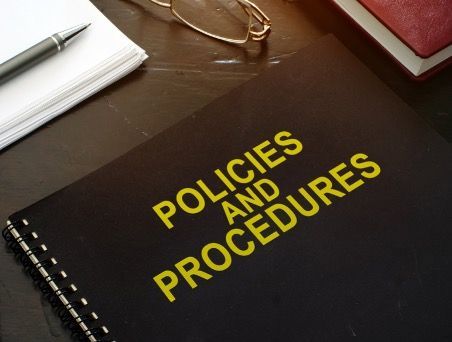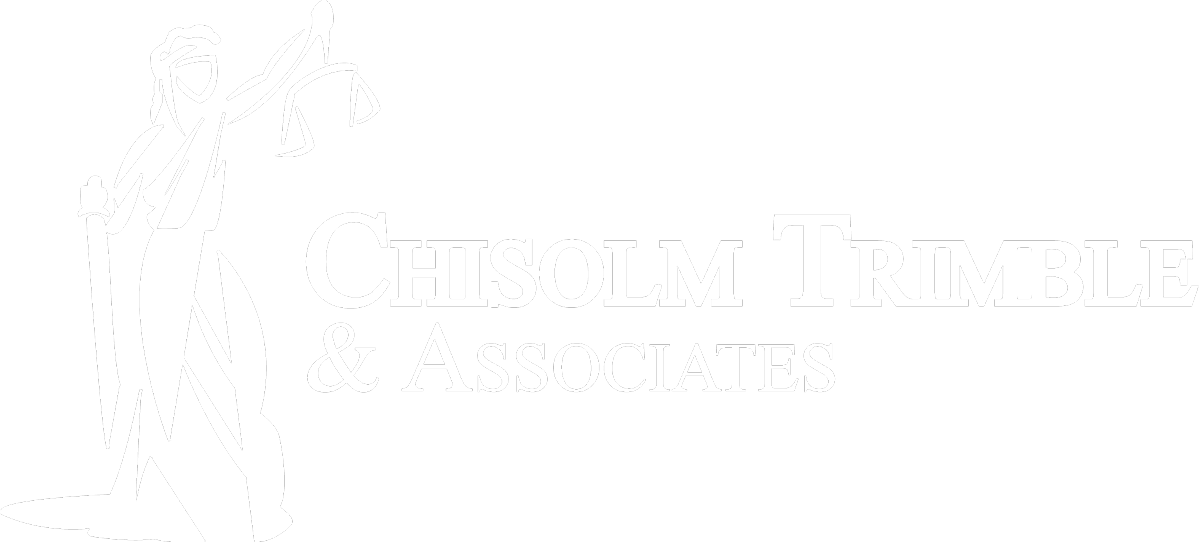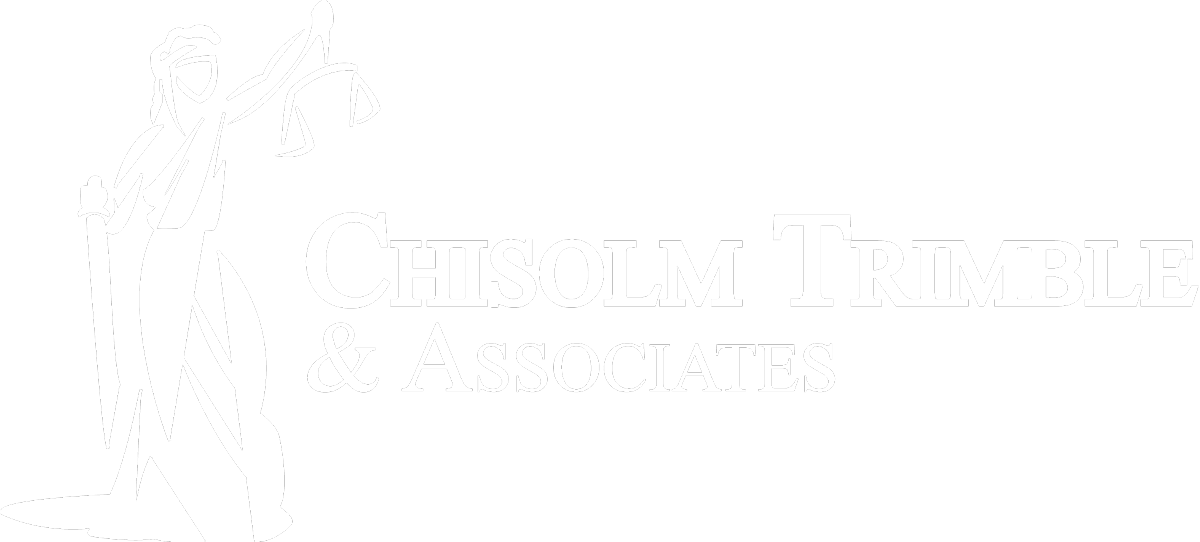Blog

Family gatherings, whether they are holiday celebrations, birthdays, or other special occasions, can be challenging for divorced parents and their children. Navigating these events post-divorce in Georgia requires careful planning, communication, and consideration for the emotional well-being of all involved. It's important to keep in mind that while your family structure has changed, the need for healthy family connections remains. First and foremost, ensure that the children’s best interests are prioritized. This may mean that both parents need to put aside personal differences to create a positive and loving environment for their children during family gatherings. It’s crucial to avoid putting children in the middle of any conflict or making them feel as though they have to choose sides. If possible, try to be flexible with the visitation schedule, allowing children to spend time with extended family from both sides, whether that means sharing holidays or having two separate celebrations. Clear communication with your ex-spouse is essential. Having an open and honest discussion about plans for family gatherings can help prevent any misunderstandings. Be upfront about expectations, and work together to ensure that both parents have an opportunity to be involved in significant family events. If attending the same gathering is not feasible, consider arranging separate celebrations that allow the children to enjoy the event with both sides of the family. Another important factor is setting boundaries and managing expectations. Family gatherings may be emotionally charged, and tensions can run high. Agree in advance on respectful behavior, and set limits on the types of interactions that are acceptable. It may be necessary to establish clear rules for how both parents will conduct themselves, especially in the presence of children or extended family members. If you are still in the process of navigating co-parenting, therapy or family counseling can be helpful in preparing for family gatherings. A neutral third party can guide conversations and help establish strategies to handle difficult situations. Therapy can also provide children with the tools to cope with the changes in their family dynamics and navigate these social situations more effectively. At Chisolm Trimble Law, we understand the complexities of co-parenting and family dynamics after divorce. If you need legal guidance or assistance with co-parenting, contact our office at 770-741-1570 or visit www.chisolmtrimblelaw.com . Our firm has been named one of Georgia’s top 10 family law firms, and our Managing Attorney has been selected as one of Georgia’s Super Lawyers.

Legal fees can be one of the most significant concerns for individuals involved in family law cases. Whether you are going through a divorce, child custody battle, or another family law issue, it’s essential to understand how legal fees are structured and how to manage these expenses throughout the process. In Georgia, family law attorneys typically charge hourly rates, but some may offer flat-fee services for specific matters like uncontested divorces or simple custody arrangements. One of the most common questions clients ask is whether they can be required to pay their spouse’s legal fees. Under Georgia law, the court has the discretion to order one spouse to pay the other’s legal fees if there is a significant disparity in income or financial resources. In divorce cases, the court may award attorney’s fees to the spouse who is financially disadvantaged, ensuring that both parties have equal access to legal representation. However, the court will only do so if it finds that the requesting spouse is unable to afford the costs of litigation. When considering how to handle legal fees, it’s also important to keep track of the expenses associated with your case. This includes filing fees, expert witness fees, court costs, and any other expenses that may arise during litigation. Discussing payment structures with your attorney at the outset of your case can help you prepare for these costs and ensure that you are not caught off guard by unexpected fees. Many family law attorneys offer payment plans to help clients manage the costs of legal representation. If you are concerned about the financial burden of family law fees, it’s important to communicate your concerns with your attorney and explore options for payment arrangements. Additionally, some legal aid organizations may offer assistance for low-income individuals who need help with family law cases. If you need help navigating legal fees or have questions about family law costs, contact our office at 770-741-1570 or visit www.chisolmtrimblelaw.com . Our firm has been named one of Georgia’s top 10 family law firms, and our Managing Attorney has been selected as one of Georgia’s Super Lawyers.

Family law and estate planning are closely intertwined, as both areas of law deal with the protection and distribution of assets. Estate planning includes the creation of wills, trusts, and other legal instruments to ensure that a person’s assets are distributed according to their wishes after their death. Family law plays a significant role in this process, particularly when it comes to the division of assets during divorce or when determining guardianship for minor children. In Georgia, family law impacts estate planning by ensuring that marital property is properly divided in the event of a divorce. Georgia follows the principle of equitable distribution, meaning that marital assets are divided fairly but not necessarily equally. This is important to consider when creating an estate plan, as the division of assets during a divorce may impact what remains to be distributed through a will or trust. Family law also comes into play when creating a will or trust to address the care of children. In the event of the death of a parent, family law determines the legal guardianship of minor children. It is essential for parents to include clear instructions in their estate plan regarding who should care for their children if both parents pass away. Additionally, family law may impact the creation of a trust to ensure that children’s financial needs are met in accordance with the parents’ wishes. Another aspect of estate planning influenced by family law is the creation of powers of attorney and healthcare directives. These legal documents allow individuals to designate someone to make healthcare decisions or manage financial matters in the event that they become incapacitated. Family law attorneys can help ensure that these documents are drafted in compliance with Georgia law and that they reflect the individual’s wishes. If you need assistance with estate planning or understanding how family law affects your estate plan, contact our office at 770-741-1570 or visit www.chisolmtrimblelaw.com . Our firm has been named one of Georgia’s top 10 family law firms, and our Managing Attorney has been selected as one of Georgia’s Super Lawyers.

Video tutorials are an excellent way to learn about family law procedures in Georgia. They offer a visual, step-by-step breakdown of the legal processes involved in divorce, child custody, spousal support, and other family law matters. By providing easy-to-understand explanations and real-world examples, video tutorials can help individuals feel more prepared and confident when navigating their own legal situations. For example, a video tutorial on the divorce process in Georgia can guide individuals through the steps, from filing the initial petition to finalizing the divorce. It may cover key topics such as how to serve the other party, what documents are needed, and how to address issues like property division, alimony, and child custody. By seeing the process laid out visually, individuals can get a better understanding of what to expect at each stage. Similarly, video tutorials on child custody cases in Georgia can explain the factors that courts consider when making custody determinations. These tutorials may provide insight into how custody evaluations are conducted, how to prepare for a custody hearing, and the importance of maintaining a cooperative relationship with the other parent. Videos can also explain the difference between joint custody and sole custody and offer tips for working with attorneys and mediators to reach a favorable outcome. For those dealing with spousal support (alimony), video tutorials can clarify how alimony is determined in Georgia. They can address common questions such as whether spousal support is guaranteed, how the amount of alimony is calculated, and how long it typically lasts. By offering practical examples and real-world scenarios, these videos can help individuals understand their rights and obligations when it comes to alimony. Video tutorials are an engaging and effective learning tool, especially for those who may be overwhelmed or uncertain about the family law process. If you are interested in watching video tutorials or need assistance with a family law issue, contact our office at 770-741-1570 or visit www.chisolmtrimblelaw.com . Our firm has been named one of Georgia’s top 10 family law firms, and our Managing Attorney has been selected as one of Georgia’s Super Lawyers.

Interactive quizzes offer an engaging and effective way to test your understanding of family law concepts, rights, and responsibilities. Whether you're navigating a divorce, child custody dispute, or simply seeking to understand your legal standing, quizzes can provide valuable insights into your knowledge and identify areas where further education is needed. Why Use Interactive Quizzes? Family law can be complex, covering a wide range of topics such as: Divorce: Grounds for divorce, property division, alimony. Child Custody: Determining the best interests of the child, visitation rights, parental responsibilities. Financial Matters: Child support, spousal support, asset division. Interactive quizzes help break down these complex topics into manageable segments, making learning more accessible and enjoyable. They also provide immediate feedback, allowing you to quickly identify areas where your understanding is lacking. Quizzes are particularly useful for: Identifying Knowledge Gaps: Pinpointing specific areas of family law where you need more information. Reinforcing Learning: Solidifying your understanding of key concepts and legal terms. Engaging with the Material: Making learning more interactive and less daunting. Preparing for Legal Consultations: Becoming more informed about your situation before seeking professional advice. Examples of Family Law Quiz Topics Here are a few examples of interactive quiz topics related to family law, particularly relevant to Georgia residents: Divorce in Georgia: Covering grounds for divorce, residency requirements, and the divorce process. Grounds for Divorce: Exploring fault-based and no-fault divorce options. Property Division: Understanding equitable distribution of assets in a divorce. Child Custody Factors: Identifying the factors that courts consider when determining child custody arrangements. Child Support Calculations: Learning how child support is calculated based on income and other factors. Spousal Support (Alimony): Understanding the factors that influence spousal support awards. Key Legal Terms and Concepts Interactive quizzes can also help you familiarize yourself with essential legal terms, such as: Joint Custody: Understanding the shared responsibilities and rights of parents regarding their children. Sole Custody: Understanding when one parent has primary custody. Spousal Support (Alimony): Differentiating between various types of spousal support (e.g., temporary, rehabilitative, permanent). Equitable Distribution: Grasping the concept of fair, but not necessarily equal, division of assets. Separate Property: Understanding property owned prior to marriage or received as a gift or inheritance during the marriage. Marital Property: Understanding property acquired during the marriage. By testing your knowledge of these terms, you'll be better equipped to understand legal documents and communicate effectively with legal professionals. Need Further Guidance? While interactive quizzes can be a valuable tool for self-education, they are not a substitute for professional legal advice. If you have specific questions or concerns about your family law situation, we encourage you to contact our office. Phone: 770-741-1570 Website: www.chisolmtrimblelaw.com We are proud to be recognized as one of the top 10 family law firms in Georgia , and our Managing Attorney is a Super Lawyer . Contact us today for expert guidance and support.

Facing family law issues in Georgia can be overwhelming. Arming yourself with knowledge is a crucial first step. Reading books written by experienced legal professionals can help you: Understand the legal process Prepare for your case Learn about your rights and responsibilities Recommended Reading Divorce in Georgia by Attorney John C. Barrow : A comprehensive guide to Georgia's divorce laws and procedures. Covers property division, spousal support, child custody, mediation, and more. A must-read for anyone navigating divorce in Georgia. The Georgia Divorce Handbook by Attorney James R. D. Jones : Provides practical advice on every stage of the divorce process, from filing to judgment. Offers guidance on managing finances, protecting assets, and seeking emotional support. Child Custody in Georgia by Attorney Lisa M. Smith : Offers detailed guidance on Georgia's child custody laws. Includes information on custody hearings, court decisions, and tips for successful co-parenting. Essential for parents involved in custody disputes. While these books provide valuable information, every family law case is unique. For personalized legal advice and representation, contact Chisolm Trimble Law. Call us at 770-741-1570 or visit our website at www.chisolmtrimblelaw.com. We are proud to be recognized as one of Georgia's top 10 family law firms . Our Managing Attorney has also been selected as a Super Lawyer .

Family law encompasses a wide range of sensitive and impactful legal matters. Case studies provide invaluable insight into how these laws are applied in real-world scenarios, offering a clearer understanding of potential outcomes and legal strategies. In Georgia, several landmark cases have shaped the interpretation and enforcement of family law principles. Divorce Settlements: Equitable Distribution Georgia follows the principle of equitable distribution in divorce cases, meaning marital property is divided fairly, though not necessarily equally, between the parties. The landmark case of Williams v. Williams significantly clarified how this principle is applied. This case emphasized the court's discretion in considering various factors, such as contributions of each spouse (both financial and non-financial), the conduct of the parties during the marriage, and the economic circumstances of each spouse at the time of the divorce. Williams v. Williams set a precedent for evaluating these factors comprehensively when determining a fair division of assets. Child Custody: Joint Custody Preference Georgia law favors joint custody arrangements when it is in the best interests of the child. The case of Smith v. Smith reinforced this preference, highlighting the importance of both parents' involvement in a child's life. While not mandating joint custody in every case, Smith v. Smith emphasized that courts must give serious consideration to such arrangements, unless evidence demonstrates it would be detrimental to the child's well-being. This case solidified the legal framework for prioritizing the child's needs and fostering cooperative parenting whenever possible. Spousal Support: Alimony Considerations Alimony, or spousal support, is a critical aspect of some divorce cases. The case of Anderson v. Anderson provides guidance on the factors courts consider when determining whether to award alimony and, if so, the amount and duration. Anderson v. Anderson underscored the importance of evaluating the financial needs and resources of each spouse, the standard of living established during the marriage, the duration of the marriage, and the contributions of each spouse to the marriage. This case provides a framework for courts to ensure that alimony awards are fair and equitable, taking into account the specific circumstances of each case. Navigating family law matters can be complex and emotionally challenging. Understanding the nuances of Georgia law and how it's applied in practice is crucial for achieving the best possible outcome in your case. If you're facing a divorce, child custody dispute, or need guidance on spousal support, contact Chisolm Trimble Law today. We are a top 10 family law firm with a proven track record of success. Our Managing Attorney is a Super Lawyer, dedicated to providing compassionate and effective legal representation. We can help you understand your rights and options and guide you through every step of the legal process.

Webinars are an excellent way to stay informed about family law topics and to gain a deeper understanding of the legal issues that may affect you. They provide an accessible platform for individuals to learn from legal professionals, ask questions, and gain insight into common family law matters such as divorce, child custody, alimony, and property division. Attending a family law webinar can be beneficial for individuals who are going through a divorce, those considering filing for divorce, or parents navigating custody battles. These webinars typically offer expert advice on the legal process and answer common questions regarding what to expect. Additionally, webinars allow attendees to learn about the latest updates in family law, including any changes to Georgia laws that might affect their case. Family law webinars may also focus on specific topics, such as child custody arrangements, the role of mediation, or the financial aspects of divorce. This allows individuals to gain a targeted understanding of the area of family law that is most relevant to their situation. During the webinar, participants can ask questions anonymously, providing an opportunity to receive expert advice in a comfortable and informal setting. For those in Georgia, family law webinars can also provide valuable insight into how local courts operate and what resources are available to those facing legal challenges. These sessions are often hosted by experienced family law attorneys, offering the chance to learn directly from professionals with years of expertise. If you're interested in attending a family law webinar or need assistance with your family law case, contact our office at 770-741-1570 or visit www.chisolmtrimblelaw.com . Our firm has been named one of Georgia’s top 10 family law firms, and our Managing Attorney has been selected as one of Georgia’s Super Lawyers.

Legal terminology can be confusing for individuals navigating the family law system, especially for those who are going through a divorce or custody dispute. Understanding key terms can help you feel more informed and empowered during this difficult time. In Georgia, family law includes many specific terms related to divorce, child custody, support, alimony, and other legal processes, and being familiar with these terms is essential to effectively communicate with your attorney and understand your case. For example, “alimony” refers to the financial support one spouse may be ordered to pay the other after divorce. Georgia law considers various factors when determining whether alimony is appropriate, such as the length of the marriage, the standard of living during the marriage, and the financial needs of the spouse seeking support. Another important term is “child custody,” which refers to the legal authority over decisions related to the child’s upbringing. Custody can be either legal (decision-making power) or physical (where the child lives), and Georgia courts prefer joint custody arrangements when possible. “Child support” is another term that often comes up during family law cases. This refers to the financial support one parent provides to the other to assist with the costs of raising a child. In Georgia, child support is generally calculated using a standard formula based on both parents' income and the needs of the child. Terms like “modification” refer to changes in existing court orders, such as adjusting child support or custody arrangements. Additionally, “marital property” refers to assets acquired during the marriage and typically subject to division during a divorce. Georgia follows an equitable distribution model, meaning property is divided fairly, but not necessarily equally. Understanding terms related to property division, such as “separate property” (assets owned before the marriage or acquired through inheritance or gift), can be essential for protecting your interests. If you’re unsure about any legal terminology during your family law case, don’t hesitate to contact our office. Our team can guide you through the legal process and ensure you understand your rights and responsibilities. Contact us at 770-741-1570 or visit www.chisolmtrimblelaw.com . Our firm has been named one of Georgia’s top 10 family law firms, and our Managing Attorney has been selected as one of Georgia’s Super Lawyers.

Journaling is a therapeutic tool that can help individuals process emotions and promote healing after a divorce. Writing about your feelings, experiences, and thoughts provides a safe outlet for expressing complex emotions. In addition to serving as an emotional release, journaling can also help you reflect on your personal growth and create a sense of clarity during a difficult time. Research has shown that expressive writing can reduce stress and increase emotional resilience. Writing in a journal allows individuals to reflect on their feelings without judgment, helping them to work through their emotions and gain insight into their thoughts. This process can also offer a sense of control, as it allows you to release pent-up feelings in a productive way. Journaling can also be an effective way to track your progress as you heal from divorce. Many people find that revisiting their journal entries over time helps them see how far they’ve come emotionally. It’s also an opportunity to set personal goals and reflect on the lessons learned from the divorce process. For some, journaling serves as a means of self-discovery and healing. By writing about their experiences, individuals may uncover hidden emotions or gain clarity on issues that they were previously unable to address. Whether through writing prompts or free-form expression, journaling can be a powerful tool for personal growth and emotional recovery. If you are facing the legal complexities of divorce or need guidance during your family law case, contact our office at 770-741-1570 or visit www.chisolmtrimblelaw.com . Our firm has been named one of Georgia’s top 10 family law firms, and our Managing Attorney has been selected as one of Georgia’s Super Lawyers.


